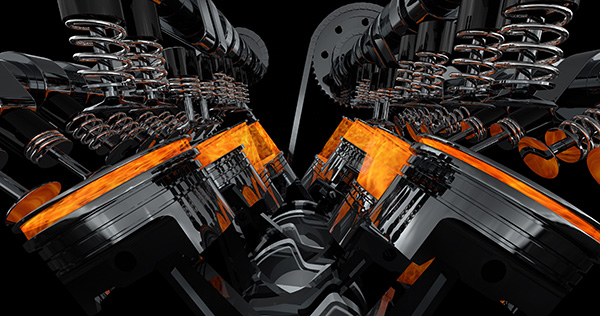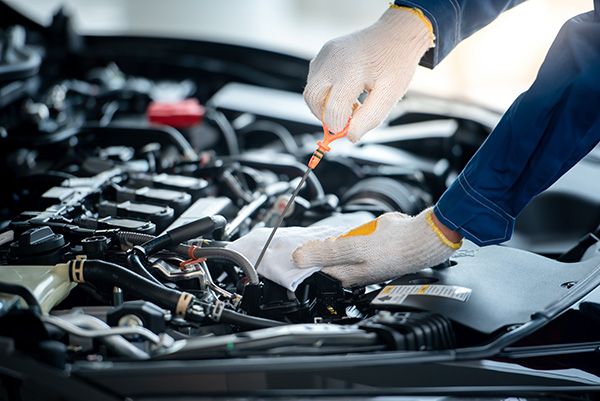Posted on 5/30/2025

Your vehicle’s climate control system does more than just keep you warm in the winter and cool in the summer. It also filters the air you breathe while you drive. Over time, that system can collect moisture, dust, pollen, and even mold, which can impact air quality and lead to unpleasant odors. A climate system purification service is designed to clean out these contaminants and restore fresh airflow to your cabin. If your car’s air has started to smell stale or you’re noticing more allergy symptoms on the road, here’s what this service involves and why it might be worth considering. What the Service Includes A climate system purification is a specialized service that cleans and disinfects the HVAC system. This usually involves using a safe, automotive-grade disinfectant spray or foam that’s introduced into the system through the air intake or vents. The product works its way through the evaporator core, ductwork, and cabin filter area ... read more
Posted on 4/25/2025

When your engine’s in good shape, it tends to stay out of your way—which makes it easy to miss the early signs when something starts to slip. But small changes in how your car drives, sounds, or feels can be its way of signaling a deeper problem. Paying attention to those early hints can save you a lot of stress, money, and time in the shop. So what should you watch out for before a small issue turns into a major repair? 1. The Check Engine Light Comes On It might be tempting to brush off the check engine light, especially if your car seems to be running fine. But this light is your car’s way of telling you something isn’t right—whether it’s a misfire, a fuel system issue, or a failing sensor. A steady light usually indicates a problem that needs diagnosis soon. A flashing light, however, is more serious and means you should stop driving and get it checked immediately. Even if it turns off on its own, the underlying issue may stil ... read more
Posted on 3/28/2025

Oklahoma is known for its wide-open highways, rural backroads, and bustling interstates, but not all roads in the state are easy to navigate. Some are notorious for high accident rates, poor road conditions, or hazardous weather-related issues. Whether you’re a daily commuter or just passing through, knowing which roads pose the most risks can help you stay safe behind the wheel. Turner Turnpike (I-44) Connecting Oklahoma City and Tulsa, the Turner Turnpike is one of the busiest highways in the state. The high speeds, heavy traffic, and frequent construction zones make it a challenging drive. Sudden lane shifts, aggressive drivers, and unpredictable weather—especially in winter—add to the dangers. Drivers should remain alert, keep a safe distance from other vehicles, and slow down in bad weather. I-35 Corridor Interstate 35 runs through the heart of Oklahoma, linking major cities such as Norman, Oklahoma City, and Edmond. This str ... read more
Posted on 2/28/2025

When it comes time to sell or trade in your car, you want to get the best possible price. But resale value isn’t just about the make and model—it’s about how well you’ve maintained your vehicle over time. A well-kept car with a clean history, solid mechanical condition, and a polished appearance will always attract higher offers. If you’re planning to sell your vehicle in the near future, taking the right steps now can significantly increase its resale value. Keep Up With Routine Maintenance A car with a strong service record is far more appealing to buyers than one with an uncertain history. Regular oil changes, brake checks, fluid flushes, and tire rotations show that your car has been well cared for. A potential buyer (or dealership) will often check maintenance records before making an offer, so keeping receipts and service logs can help boost confidence in your car’s condition. Skipping routine maintenance can lead to engine ... read more
Posted on 1/31/2025

Owning a car is more than just about enjoying the convenience of having a vehicle at your disposal. It’s also about ensuring that your car stays in great condition for years to come. Regular maintenance not only keeps your car running efficiently but also saves you from costly repairs down the road. If you’re wondering where to start, these essential maintenance tasks should be on every car owner’s radar. Check and Change Your Oil Regularly Oil is the lifeblood of your car’s engine, keeping its components lubricated and running efficiently. Over time, oil gets dirty and loses its effectiveness, which can lead to engine wear or even failure. Regular oil changes, based on your car’s recommended schedule, ensure your engine operates at its best. Don’t forget to check your oil levels periodically and top it off if needed to prevent any issues. Monitor Tire Health and Pressure Your tires are what keep your car connect ... read more